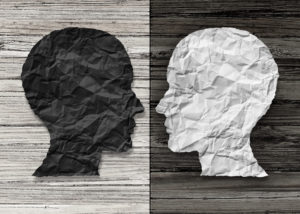The genre of hip-hop, including everything from beats and lyrics to fashion and language, has undoubtedly aroused controversy since its birth over 40 years ago. Many times, hip-hop is entangled in public scorn and negative stigma, however mental health professionals out of Cambridge University are rapping to a different beat.
In an article published in The Lancet Psychiatry, psychiatrists at Cambridge explain that based on new research, they believe that hip-hop can actually help improve upon mental health issues such as depression.
“Much of hip-hop comes from areas of great socioeconomic deprivation, so it’s inevitable that its lyrics will reflect the issues faced by people brought up in these areas, including poverty, marginalization, crime, and drugs,” explained Dr. Akeem Sule, a member of the team at the University of Cambridge.
What was once viewed as a genre of music that perpetuated violence, hate crimes, drug use and more is now being looked at in a completely different light. The psychiatrists at Cambridge University noted two specific songs that speak to the idea that mental illnesses can be treated through hip-hop music: Juicy by the Notorious B.I.G. and The Message by Grandmaster Flash and the Furious Five.
In “Juicy,” the Notorious B.I.G. addresses going from an impoverished child living in the slums of New York to a major commercial success. At one point in the song, he raps:
“I never thought it could happen, this rapping stuff
I was too used to packing gats and stuff
Now honeys play me close like butter play toast
From the Mississippi down to the east coast
Condos in Queens, indo for weeks
Sold out seats to hear Biggie Smalls speak”
In the Grandmaster Flash hit, he raps:
“It’s like a jungle sometimes
It makes me wonder how I keep from going under
A child is born with no state of mind
Blind to the ways of mankind
God is smiling on you but he’s frowning too
Because only God knows what you’ll go through”
Both songs support Cambridge University’s findings that lyrics such as these – where rap artists talk about common, everyday struggles and the power of hope – can be instrumental in helping those with mental illnesses become inspired to get help and begin to heal.
Specifically, they state that the use of hip-hop is very similar to the use of positive visual imagery, a common therapeutic technique designed to help individuals with mental health issues begin to visualize positivity that will help them overcome the downside of their mental illness.
As they continue to look into the many benefits of hip-hop music, psychiatrists at Cambridge University are hopeful that they will be able to include this type of music into their treatment practices sooner rather than later.
Author
-

President, CEO & Founder at Northbound Treatment Network
Paul Alexander is the CEO, President & Founder of Northbound Treatment Network in Newport Beach, California. He believes wholeheartedly in transformational leadership, organizational health and effective, fully integrated substance use disorder and mental health treatment. With over 27 years of experience in behavioral healthcare, Paul has extensive knowledge of “in vivo” treatment modalities, clinical development, operations, strategy, marketing and financial planning. He has been widely recognized for his development of collegiate-based residential treatment programs for students in recovery and authored a research study at The University of California confirming this modality’s effectiveness.
Paul’s comprehensive professional experience, willingness to innovate, and emphasis on organizational health are vital factors in Northbound’s continued success. Paul received his Certified Addiction Treatment Specialist training at Saddleback College in Mission Viejo, CA, and was awarded Outstanding Alumni Service Award in 2002. Paul holds a Bachelor of Arts degree in Criminology, Law and Society, Summa Cum Laude, from University of California, Irvine, and a Juris Doctorate degree from Loyola Law School of Los Angeles. Paul currently serves on The National Association of Addiction Treatment Providers (NAATP) board. In addition, he serves on The Family Recovery Foundation board and The CarePossible board in Orange County; both organizations are committed to raising funds for family recovery and treatment for former military personnel. Paul is in recovery himself and lives in Orange County with his wife Silvana and his two young sons, Noah and Dean.










